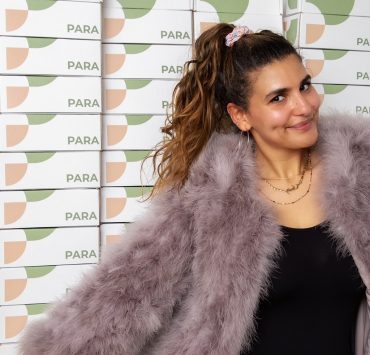Gold Header Ad
reserve your ad hereKnown as the Olivia Pope of Cannabis, Ebony Andersen is a black woman, standing at the top of an empire, ensuring that black-owned in cannabis gets a seat at the table.
Compliance is conforming to rules; such as policies/regulations/law. When businesses are in compliance, it means that they have complied with the wish/command set in place by policies/regulations/law. In cannabis, compliance is described as: “being able to fulfill the obligations that state governments place on newly legalized cannabis industry organizations.”
All industries have compliance requirements/policies/regulations; however, because of America’s history with cannabis, cannabis compliance may appear, or may very well be, a harder ship to navigate. The industry describes cannabis compliance as: “Compliance is more than defensive protection; it is affirmatively necessary to progress as a viable business. Internal controls to prevent and detect misconduct are attractive to investors and to merger and acquisition partners. This is why there are leaders in cannabis like Ebony Andersen. 
Ebony Andersen, known as the Olivia Pope of cannabis, comes to the industry with a powerful resume and over a decade of experience navigating: land-use, planning and development, legislative lobbying, and making start-up businesses fully compliant. Her resume in cannabis includes being a partner and Chief Operating Officer of Josephine & Billie’s: “an educational space and community where women of color and their allies feel safe and welcome amidst a unique speakeasy-style cannabis retail concept.”
Ebony either works with, partially owns, and/or is a partner of, multiple black-owned cannabis businesses in California, and consults in other states across the country. The leader and fixer is keeping black-owned in cannabis in compliance, and helping solve some complex issues to ensure that their seat remains at the table. Ebony says:
“I started with policy and permitting, and quickly found operators who needed help with licensing and compliance. I knew that world well, so I quickly became the “Olivia Pope of Cannabis,” solving complex problems bringing legacy operators into compliance within the new regulatory framework.”
The importance of this work doesn’t go unnoticed!
Q & A with Ebony Andersen, The Olivia Pope of Cannabis
Please tell me about your work- pre cannabis industry.
“I have over 15 years of experience as a land-use professional. As an urban planner, I managed the Natural Resource Program for the County of Ventura, where I oversaw the surface mining and oil and gas programs. After moving back to the Inland Empire, I started a land-use consulting firm, ejma Planning + Development. I routinely work with special interest groups and legislative lobbyists on environmentally controversial or politically sensitive projects in the Los Angeles region.”
When did your passion/interest develop for cannabis?
“I became passionate about cannabis policy when I realized how few policymakers valued social equity programs. I wanted to ensure communities of color have a voice when determining what is best for our communities.”
How did you break into the industry/ what was your first role/project in cannabis?
“Once in the Inland Empire, I was consulting for a city that embraced the idea of commercial cannabis licenses. Before I knew it, I found myself looking at land use issues around cannabis. I have now managed several cannabis projects, including cultivation sites, extensive manufacturing facilities, distribution centers, retail locations in California, and consulted on Washington, Oklahoma, and Nevada projects.”
You are referred to as the Olivia Pope of Cannabis- you manage compliance for companies in the industry, and you’re an Agency Director- can you give us insight into what you do day-to-day?
“Well, a typical day for me starts at about 7 AM with the school routine. I usually go to bed as the sun rises, so my husband handles most morning activities. As a mom, I still have to do the hugs and affirmations, which helps me settle for my day. Next, I answer emails and texts until my first meeting, which I am almost always late for because it is inevitable that someone will call me with a fire I have to put out.
Once I have the first meeting out of the way, I typically have several more to follow. After 5 PM, I spend my evening discussing project updates with my construction team or engineering team. Afterward, I return any missed calls and make it 1/3 of the way through the list before being interrupted by a time-sensitive task with a 24-hour turnaround time. Once that is complete, I get back on the phone, push meetings, and reassign duties.
After adjusting my calendar, I hop on a call with my business partners to go over daily highlights. It sounds crazy, but I talk to them daily. I’m essentially Mission Control, so I must stay in contact at all times. I also look over sales numbers, product inventory reports, program decks, retail insights. After reviewing, I will then send feedback to each of my respective teams. It is late in the evening by this time, and it is time to begin the bedtime routine with the little one.
Once he is down, I begin any remaining to-dos. I usually use this time to connect with all my night owl project managers or send lengthy emails that everyone despises waking up to. I get/give the rundown of everything we have set for the next day – inspections, contractors, pulling permits, etc. Then, I finish emails that were the lowest priority.
Finally, I attempt to sleep, but by this time, the sun is usually coming up…so it all starts again.”
There is what seems to be a triangle of unity between Ball Family Farms, Sixty-Four, and Hope, and Josephine & Billie’s- is that wrong to assume and if not- can you discuss the triangle and your part in it?
“We definitely have unity! We are all Black owners of social equity businesses. The three of us have grown very close going through the licensing process in LA. We have witnessed firsthand how difficult it is for women and people of color in this industry. We are committed to uniting and supporting each other and other social equity businesses.”
Can you discuss social equity for a sec; your role, your mission, how you help social equity qualified people and companies?
“I see my role as helping translate the community’s goals to policymakers to ensure cannabis policy outcomes positively impact our communities. Through my consulting company, ejma Planning + Development, we work with municipalities on cannabis programs and develop equity-driven policies. I also work with social equity operators, providing licensing or building support.”
How does managing compliance differ from cultivation to dispensary, and which one presents a more difficult challenge?
“Retail is much more complex than cultivation because there are far more touchpoints from distribution to customer sales. Counting, sorting, labeling, rating, and sampling every product in the store is quite an undertaking. Keeping track of hundreds of plant tags and memorizing tons of strains is also challenging.
Retail is harder because I have less control over a customer-facing business. Since retail is customer-facing, security is much tighter than at a production facility. We never know who might walk through the door and change our day. However, while managing, I look for the same things (safety, process, liability, etc.), so there isn’t much difference.”
For those in compliance in other industries- let’s say- retail loss prevention- that aspire to get into cannabis compliance- what advice would you give?
“Be flexible. It’s an odd piece of advice from a very rigid person. However, it’s important to share because this industry is still developing. You also need to understand the intent of the regulations and guide yourself accordingly. As the regulations evolve, you can’t fixate on a strict interpretation of the regulation; otherwise, you may cost your clients an opportunity.”
What do you want to see changed in cannabis compliance and how would those changes make a better industry?
“I work in heavily regulated industries, and I am comfortable juggling regulations. From my perspective, cannabis is a relatively simple and environmentally mindful industry. That said, some of the regulations are extreme. For example, in my opinion, limiting trade samples is something the government should not be overly interested in. I would also like to see equity programs required for every county and city, funded by state grants. We currently have funding, but there are no requirements for the programs.”
—
More from Veronica Castillo: www.veetravelingvegcannawriter.com
Gold Scrolling Footer Ad
reserve your ad hereVeronica Castillo is known as the Traveling Cannabis Writer. Her body of work includes educational and informative insights on cannabis and various plant medicines, and she travels the country to provide insight on cannabis friendly travel. She is a collaborator, connector, content creator, and traveler that specialized in bringing to light the hidden gems in the plant space. Follow her journey: #travelingcannabiswriter.




